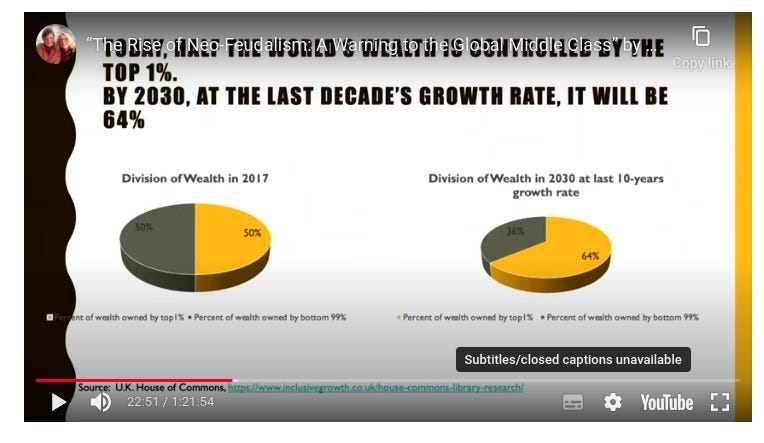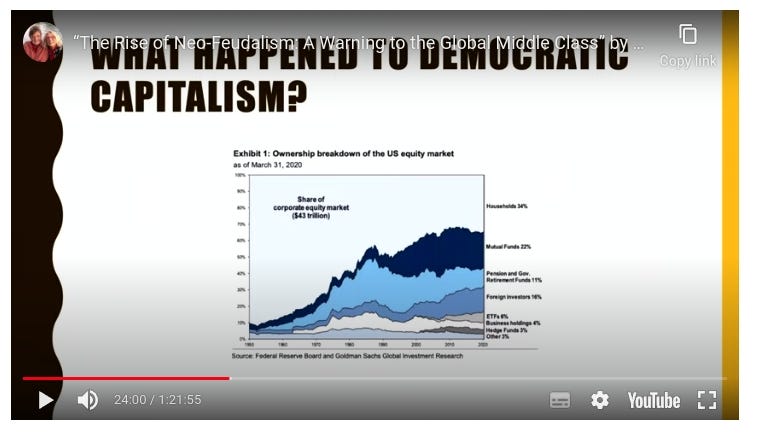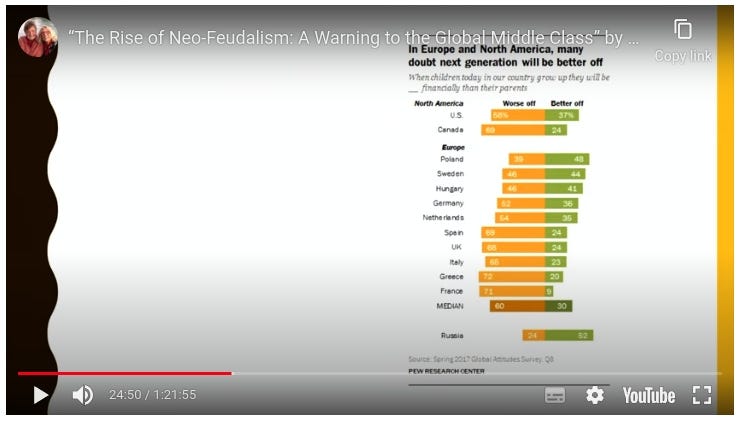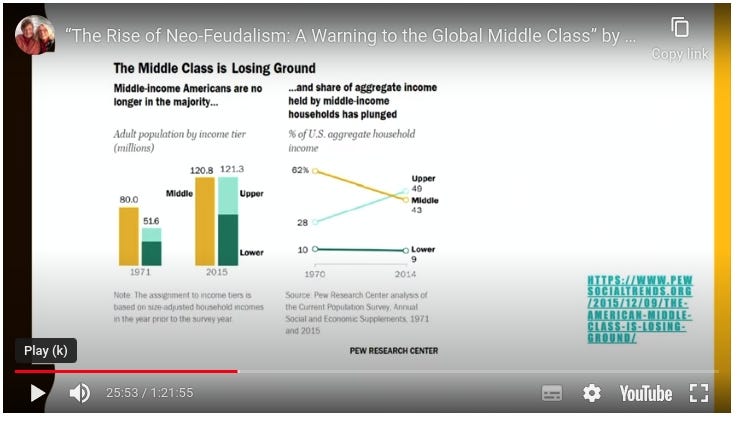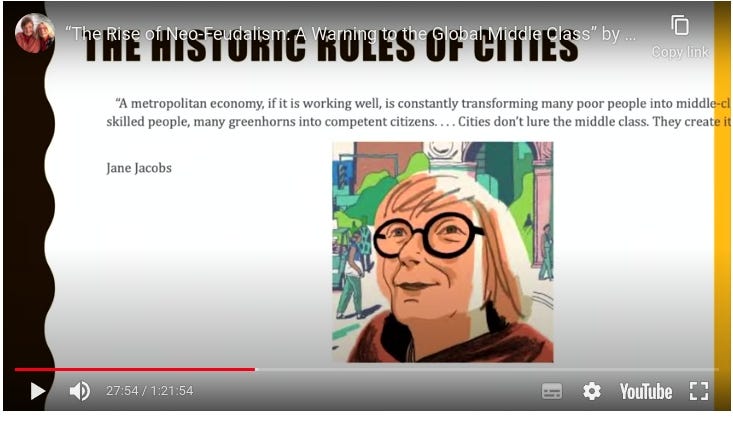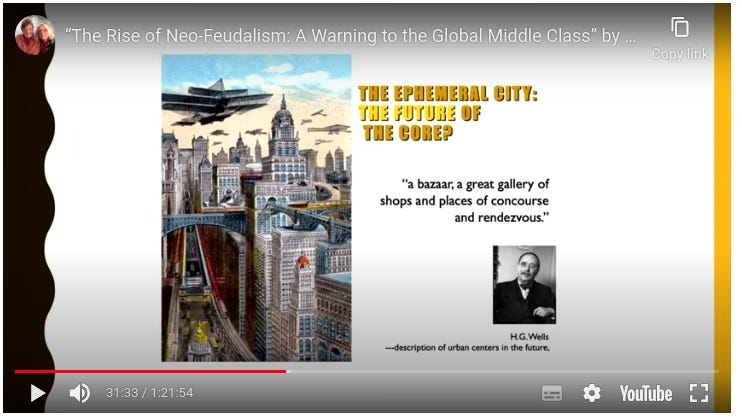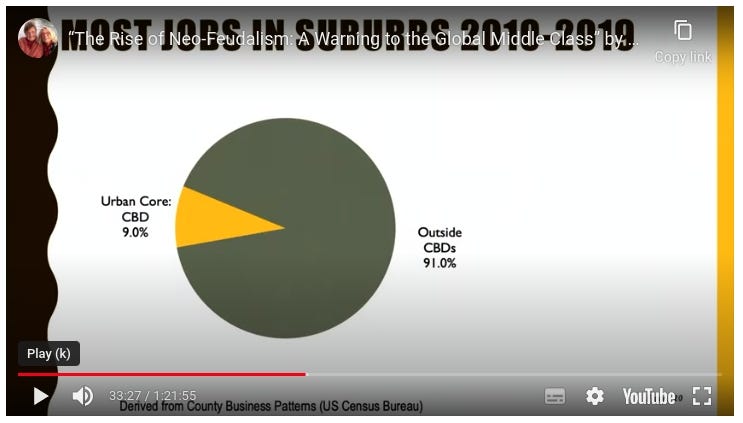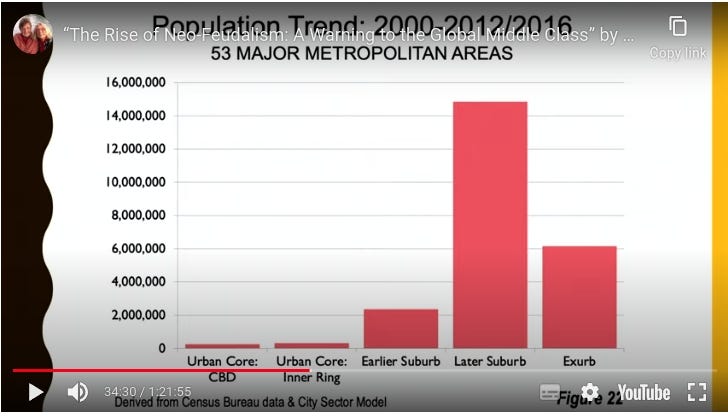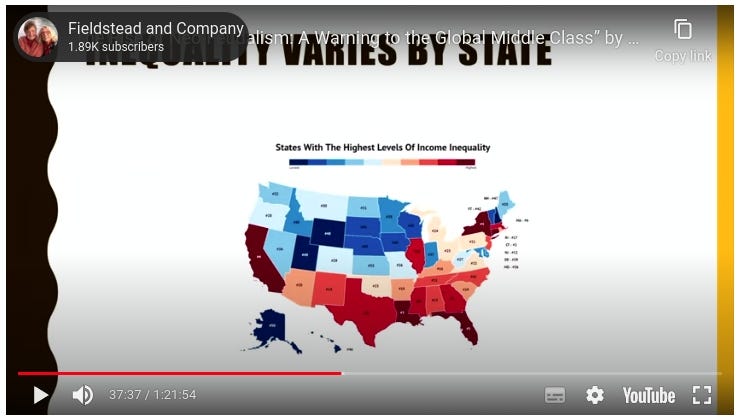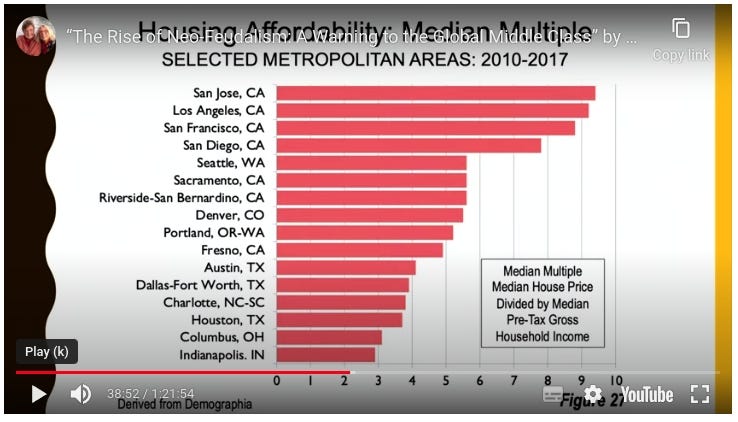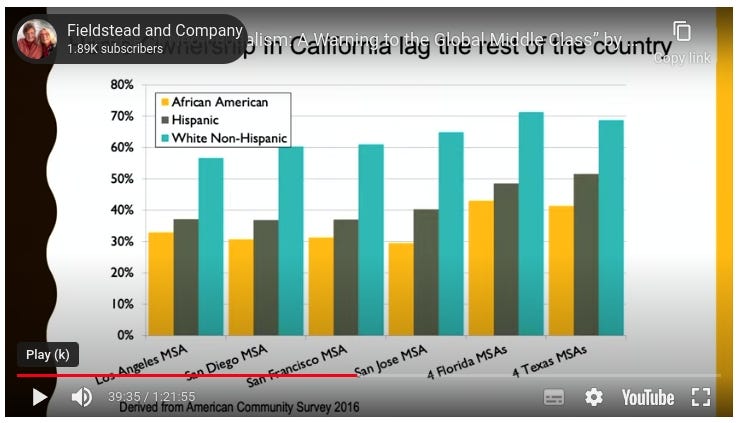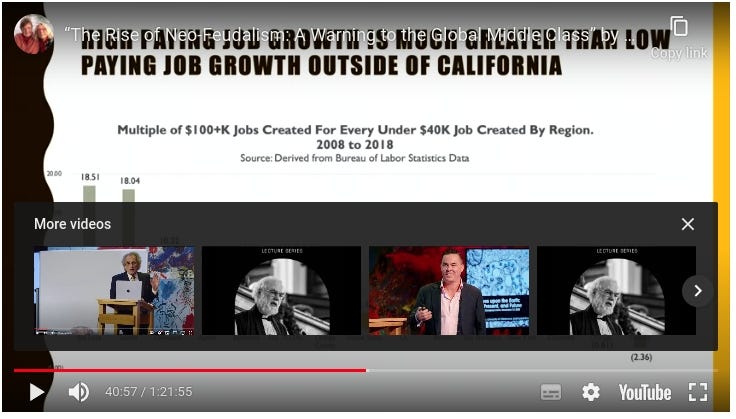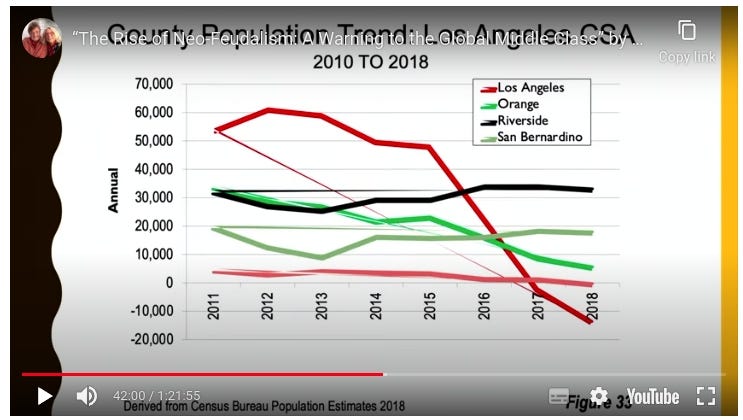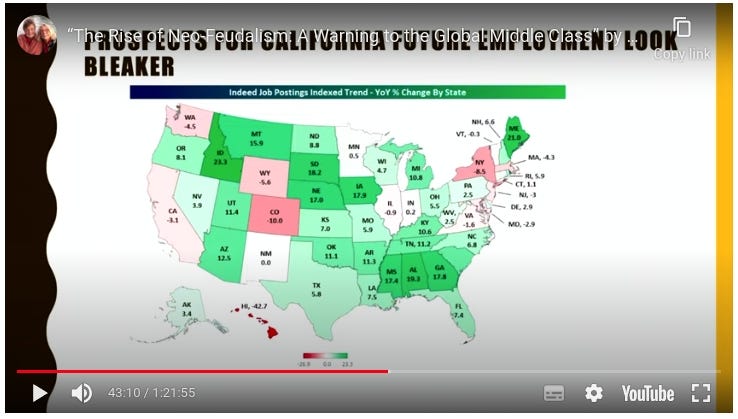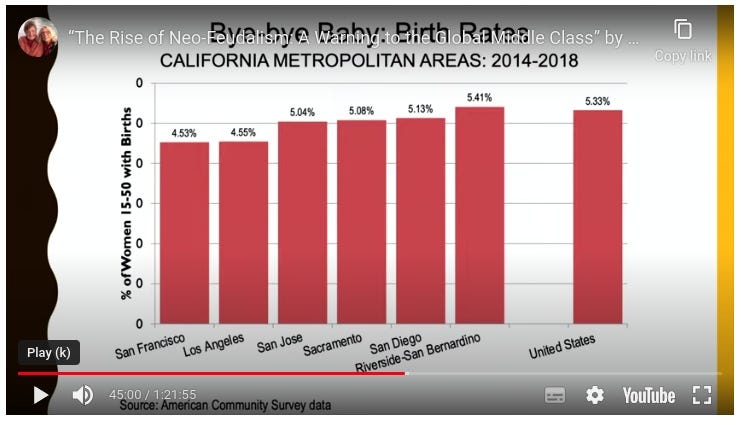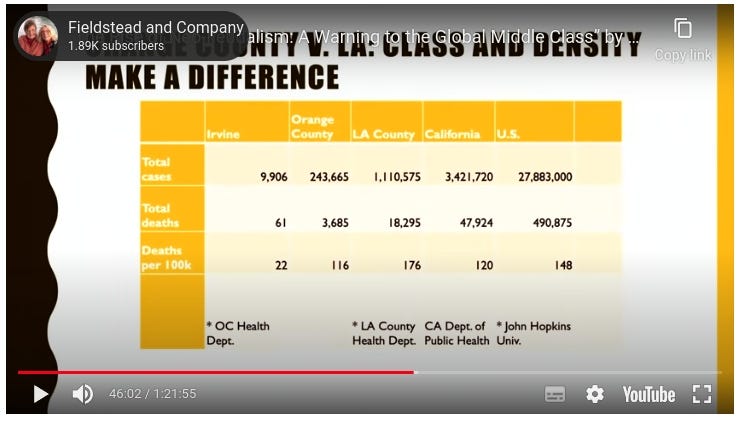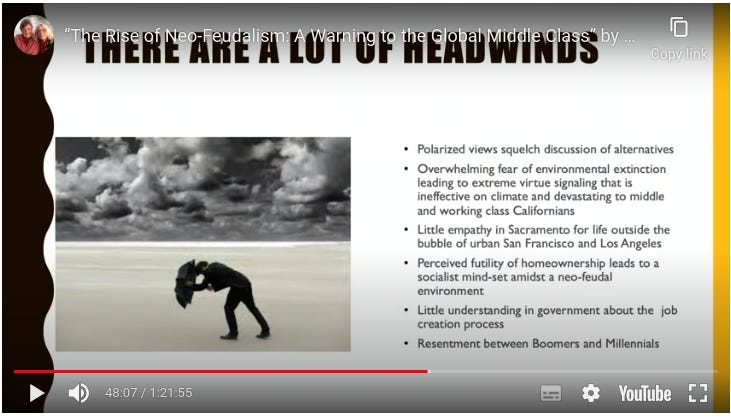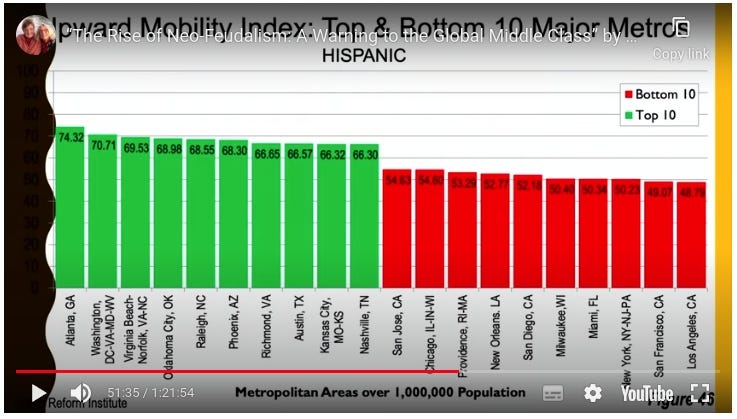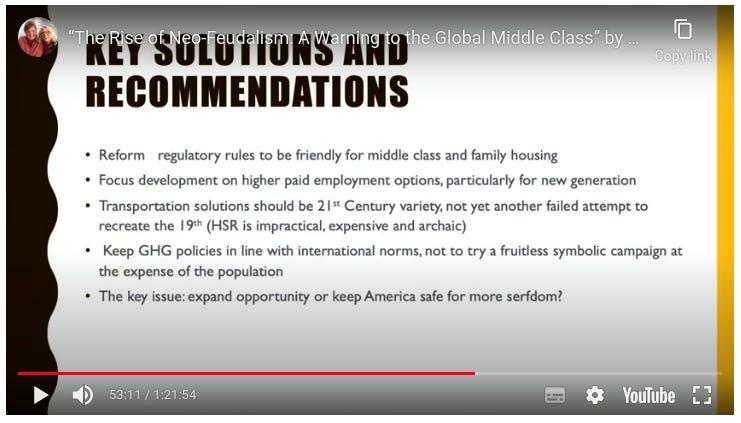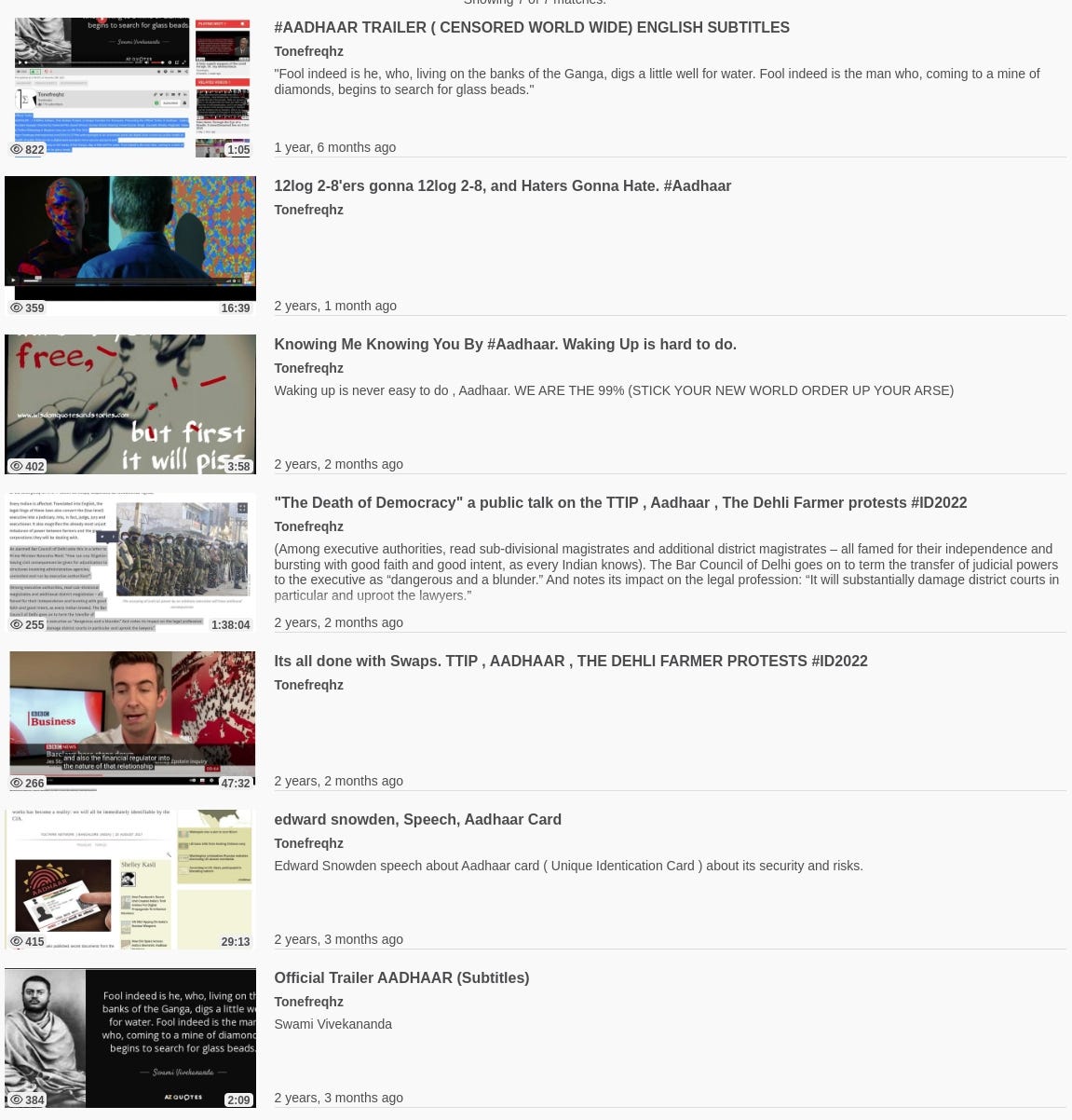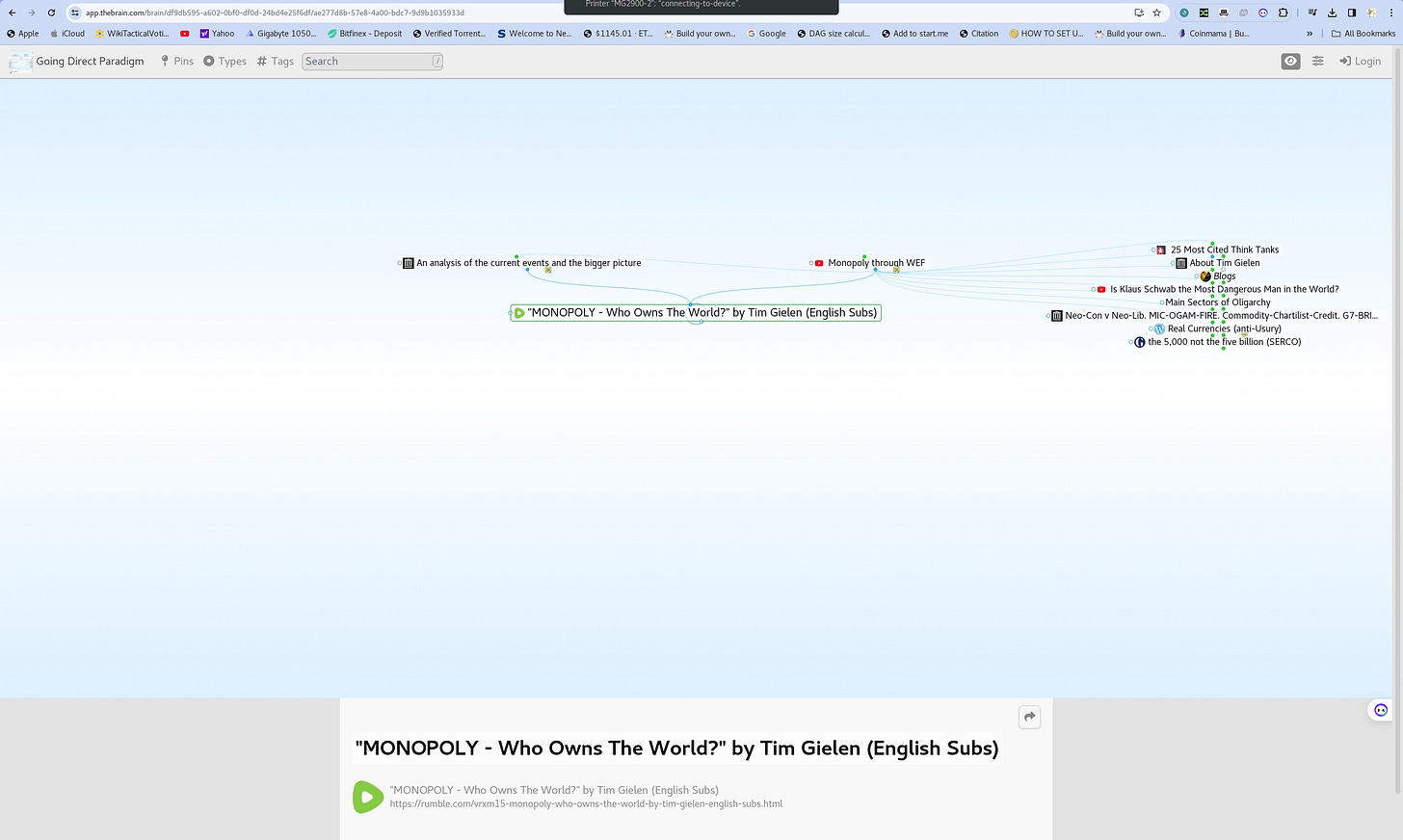Me and Bobby Mcgee, it will be a long time gone. Feudalism Going to California 4+20 = Neo Feudalism “The Rise of Neo-Feudalism: A Warning to the Global Middle Class” by Joel Kotkin
DECEMBER 19, 2021
https://joelkotkin.com/the-coming-of-neo-feudalism/
Author and academic Joel Kotkin talks to Quillette's Toby Young about the pandemic and its riotous aftermath
Politics
Joel Kotkin, executive director of the Urban Reform Institute and author of The Coming of Neo-Feudalism, talks to Toby Young about the effect of the coronavirus pandemic on American cities and the rioting that broke out following the death of George Floyd. Joel recently wrote about this in a piece entitled Pandemics and Pandemonium for Quillette. Quillette Podcast
Title: The Rise of Global Feudalism: A Warning to the Global Middle Class with Joel Kotkin
In a recent discussion with Joel Kotkin, we delved into the concerning trend of global feudalism and its impact on the middle class. Kotkin highlighted several key issues, shedding light on the challenges faced by the middle class in the current socio-economic landscape.
One of the major concerns raised by Kotkin is the migration of middle-class families from urban areas to more affordable regions such as Texas and Tennessee. The increasing cost of living in urban centers, coupled with a lack of upward mobility, has led to a significant outflow of people from these areas. As a result, regions like Texas and Tennessee are experiencing a surge in population, leading to housing price inflation and potential challenges for local communities.
Additionally, Kotkin addressed the impact of ideological polarization on politics, education, and societal norms. He expressed concerns about the decline in critical thinking and intellectual diversity, particularly within educational institutions. The politicization of education and the emphasis on ideological conformity over open debate and intellectual exploration are contributing to a concerning trend in societal discourse.
Furthermore, Kotkin highlighted the economic factors contributing to the affordability of housing, including inflation and minimum wage increases. He stressed the need for sustainable economic policies that support the middle class and ensure that individuals working full-time are able to afford a decent standard of living.
In addressing these challenges, Kotkin emphasized the importance of regulatory reforms to facilitate the construction of middle-class housing and create job opportunities. He also underscored the need for a reevaluation of economic policies to address income inequality and ensure that individuals are fairly compensated for their work.
Moreover, Kotkin discussed the impact of higher education on societal dynamics, pointing out the decline in humanities programs and the need for a more balanced and inclusive approach to education. He emphasized the importance of fostering critical thinking and intellectual curiosity within educational institutions to prepare students for a rapidly changing world.
In conclusion, Joel Kotkin's insights shed light on the complex interplay of economic, social, and educational factors contributing to the rise of global feudalism. His analysis serves as a wake-up call to policymakers, educators, and individuals alike, urging a reevaluation of current systems and a concerted effort to address the challenges faced by the global middle class.
As we navigate these complex issues, it is imperative to consider the long-term implications of current trends and work towards creating a more equitable and inclusive society for all.
Joel Kotkin's thought-provoking discussion serves as a timely reminder of the need for proactive measures to address the rise of global feudalism and its impact on the middle class. It is an opportunity for reflection and action to steer our society towards a more sustainable and equitable future.
DECEMBER 19, 2021 LEAVE A COMMENT
Author and academic Joel Kotkin talks to Quillette's Toby Young about the pandemic and its riotous aftermath
Joel Kotkin, executive director of the Urban Reform Institute and author of The Coming of Neo-Feudalism, talks to Toby Young about the effect of the coronavirus pandemic on American cities and the rioting that broke out following the death of George Floyd. Joel recently wrote about this in a piece entitled Pandemics and Pandemonium for Quillette.
account_boxQuillettelabelPolitics
https://player.whooshkaa.com/episode?id=674251
Subscribe via SpotifySubscribe via RSS
1. Economic Factors Impacting Housing Affordability:
- Inflation: The current inflationary period can affect housing affordability by driving up the cost of construction materials, labor, and overall housing prices.
- Minimum Wage Increases: Higher minimum wages, such as the $15 per hour for fast food jobs, can contribute to increased labor costs for businesses, potentially impacting housing affordability.
2. Addressing Housing Affordability:
- Regulatory Reforms: Streamlining the approval process for housing developments and repurposing redundant office and retail spaces for housing can help increase housing supply and affordability.
- Job Creation: Focusing on industries like space technology and engineering can create high-paying jobs, which in turn can support affordable housing for workers.
3. Migration Patterns and Housing Affordability:
- Migration to Amenity Areas: The migration of people from urban cities to amenity areas like Texas and Tennessee can impact housing affordability by driving up prices and potentially crowding out local residents.
- Impact on Middle America: The influx of new residents to middle America can bring both positive and negative impacts, including increased economic activity but also potential strain on local resources and housing availability.
4. Higher Education and Economic Factors:
- Economic Impact on Higher Education: The economic landscape, including inflation and minimum wage increases, can influence higher education institutions, particularly in terms of student affordability and access to education.
- Addressing Affordability in Higher Education: Exploring innovative ways to make higher education more affordable, such as through scholarship programs or partnerships with local industries, can help mitigate the impact of economic factors on students.
5. Social Justice and Economic Policy:
- Balancing Economic Growth and Social Justice: The pursuit of economic policies should be balanced with considerations for social justice, ensuring that all members of society have access to opportunities for upward mobility.
- Income Inequality and Policy Solutions: Addressing income inequality through policies such as a negative income tax or targeted support for low-income workers can help create a more equitable economic landscape.
6. Impact of Economic Factors on Workforce:
- Labor Market Dynamics: The current labor market dynamics, including the impact of minimum wage increases and inflation, can influence workforce participation and the ability of individuals to afford housing.
- Economic Policy and Workforce Support: Crafting economic policies that support workforce development and provide pathways to higher-paying jobs can contribute to improved housing affordability for workers.
7. Future Outlook:
- Balancing Economic Growth with Affordability: Striking a balance between economic growth and housing affordability will be crucial in shaping future policies and initiatives to support diverse communities.
- Long-Term Solutions: Long-term solutions should focus on creating sustainable economic opportunities while addressing the challenges posed by inflation, minimum wage increases, and migration patterns.
These are just a few considerations related to the impact of economic factors on housing affordability, workforce dynamics, and higher education in the context of current migration patterns and social justice imperatives.
I. Introduction
A. Overview of the Topic
B. Key Issues Addressed in the Text
1
1
II. The Rise of Global Feudalism
A. Characteristics of Feudalism
1. Concentration of Property
2. Dominance of Ideology in Politics
3. Decline in Upward Mobility
2
pic Unclear from Video, Figure doesn’t seem to be in the Book. Fewer Young people are starting companies is the Trend!
2
B. Impact on Middle Class
1. Housing Affordability
2. Stagnation of Economic Growth
3. Decline in Literacy and Education
III. Impact on California
A. Feudal Class Structure
1. New Aristocracy in Silicon Valley
2. Impact on Small Business Owners
3
3
B. Outward Migration from California
1. Reasons for Migration to Texas, Tennessee, and Other States
2. Housing Affordability and Income Disparities
4
4
IV. Challenges in Urbanism
A. Gentrification and Real Estate Speculation
B. Impact on Middle Class Families
C. Crime and Safety Concerns in Urban Areas
6
Ultra High Net Worth UHNW
6
V. Economic Factors and Policies
A. Inflation and Minimum Wage
1. Impact on Affordability of Housing
2. Job Market Dynamics and Wage Trends
7
7
B. Solutions for Economic Challenges
1. Regulatory Reforms for Housing Development
2. Job Creation and Industry Development
3. Social Policies for Addressing Income Disparities
VI. Higher Education and Workforce
A. Impact of Feudalism on Education System
B. Economic Implications for Workforce Mobility and Employment Opportunities
VII. Conclusion
A. Summary of Key Points
B. Call to Action for Addressing Global Feudalism and its Impacts on the Middle Class
KNOWING ME KNOWING YOU BY #AADHAAR
MONOPOLY. FILM ABOUT NOW FROM #WHO TO #THEY
Lets talk Assange ,Cypher punks, Schwarz , google Alphabet agencies and the Panopticon Jailer Bot
JA. “And because it takes too long to describe this tomato precisely we use an abstraction so we can think about it so we can talk about it. And we do that also when we use URLs. Those are frequently used as a short name for some human intellectual content. And we build all of our civilization, other than on bricks, on human intellectual content. And so …
Author: rogerglewis
https://about.me/rogerlewis Looking for a Job either in Sweden or UK. Freelance, startups, will turń my hand to anything.






